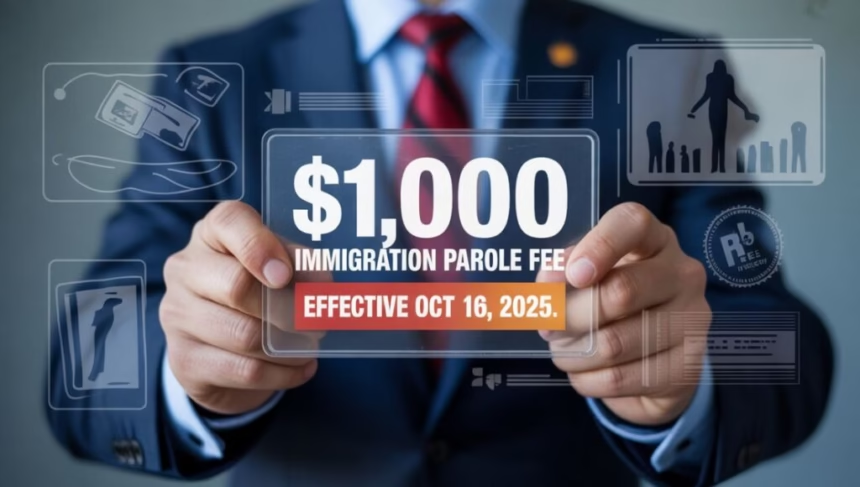The Department of Homeland Security (DHS) has introduced a $1,000 fee for individuals entering the United States under humanitarian “parole”—a temporary admission status granted to those with pressing humanitarian needs or who provide significant public benefit.
The department states that this new fee aims to enhance monitoring of the parole program and prevent misuse. DHS presents the initiative as a measure “to implement control mechanisms and combat systematic fraud within the parole framework.”
This initiative is part of a larger effort to strengthen entry regulations.
In remarks reported by Fox News, Tricia McLaughlin, deputy assistant secretary at DHS, commented on the former administration’s approach: “The Biden administration changed the use of the U.S. immigration system and altered parole policy, allowing more foreign nationals to enter the United States through this process.” Regarding the fee, she stated: “Through this new fee implementation, President Trump and Secretary Noem are emphasizing financial responsibility for foreign nationals seeking to stay in the country and are aiming to prevent system misuse. The parole fee requirement is described as a step to address changes in the immigration system and promote adherence to the existing legal framework.”
DHS clarifies that the fee is required upon parole activation. It excludes both the application submission and travel document processing. The $1,000 fee is subject to yearly revision: the department anticipates adjustments based on the Consumer Price Index, with yearly updates published in the Federal Register for any changes.
Fee administration will be managed by three federal entities overseeing borders, internal enforcement, and case processing: Customs and Border Protection (CBP), Immigration and Customs Enforcement (ICE), and U.S. Citizenship and Immigration Services (USCIS).
Historically, parole—statutorily authorized and traditionally awarded individually—has sparked debates mainly about qualification standards, time limits, and total admissions. Adding a direct fee at approval represents a departure from tradition: it imposes a financial barrier for individuals seeking entry on humanitarian grounds.
From an implementation standpoint, administering the fee across three agencies necessitates coordinated protocols: approval notification, payment deadlines, handling of non-compliance, and review processes. Setting the fee payment at decision execution reduces disputes during application processing, but poses ethical and legal challenges, especially for disadvantaged applicants.
Currently, fee exceptions or financial difficulty allowances remain undefined in the publicly available information reported by Fox News. The adjustment methodology and commitment to yearly publication in the Federal Register are, however, clearly outlined.

Sources: Fox News/ DHS







